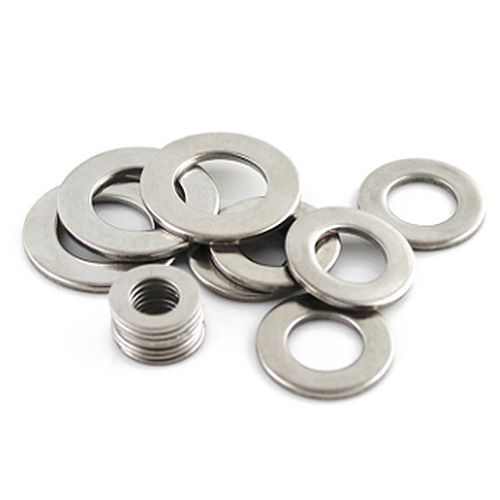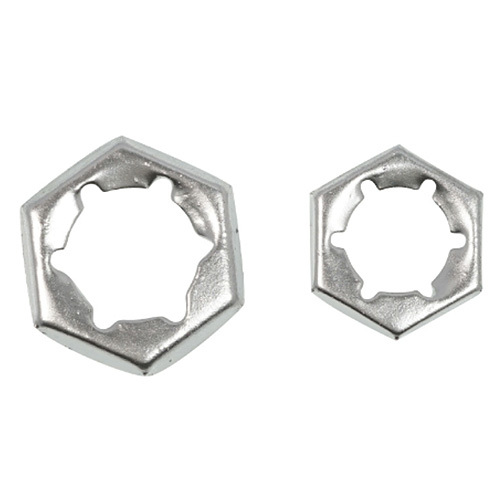How DIN 6795 Grounding Washers Enhance Electrical Safety in Equipment
2025-06-07
How DIN 6795 Grounding Washers Enhance Electrical Safety in Equipment
Table of Contents
Introduction to DIN 6795 Grounding Washers
What are Grounding Washers?
The Importance of Grounding in Electrical Systems
Key Features of DIN 6795 Grounding Washers
How DIN 6795 Grounding Washers Work
Benefits of Using DIN 6795 Grounding Washers
Installation and Maintenance of DIN 67
How DIN 6795 Grounding Washers Enhance Electrical Safety in Equipment
Table of Contents
- Introduction to DIN 6795 Grounding Washers
- What are Grounding Washers?
- The Importance of Grounding in Electrical Systems
- Key Features of DIN 6795 Grounding Washers
- How DIN 6795 Grounding Washers Work
- Benefits of Using DIN 6795 Grounding Washers
- Installation and Maintenance of DIN 6795 Grounding Washers
- Common Applications of DIN 6795 Grounding Washers
- Conclusion
- FAQs about DIN 6795 Grounding Washers
Introduction to DIN 6795 Grounding Washers
In today’s industrial landscape, ensuring electrical safety is paramount. Among the many components that contribute to electrical safety, **DIN 6795 grounding washers** stand out as critical elements. These washers not only provide a secure electrical connection but also mitigate the risk of potential electrical hazards. In this article, we delve into the significance of DIN 6795 grounding washers and how they enhance safety in various types of equipment.
What are Grounding Washers?
Grounding washers are specialized washers designed to facilitate electrical grounding by providing a large surface area for contact with electrical components. They are commonly made from conductive materials such as copper or aluminum to ensure effective current flow. The **DIN 6795 specification** outlines precise dimensions and performance characteristics for these grounding washers, making them a reliable choice for various industrial applications.
The Structure of DIN 6795 Grounding Washers
Typically, DIN 6795 grounding washers feature a unique design that includes a central hole for mounting and a broad outer rim that increases the surface area in contact with the grounding surface. This specific structure enhances the connection between the grounded component and the grounding system, ensuring that any stray electrical current is effectively diverted.
The Importance of Grounding in Electrical Systems
Grounding is a fundamental aspect of electrical safety and performance. It serves multiple purposes:
- **Safety**: Grounding ensures that excess electricity can be safely transferred to the ground, preventing electrical shock hazards.
- **Equipment Protection**: By providing a path for fault currents, grounding protects sensitive equipment from damage due to surges or faults in the electrical system.
- **Signal Integrity**: In electronic applications, proper grounding helps maintain signal integrity by minimizing noise and interference.
Understanding these benefits highlights why integrating reliable grounding solutions, such as DIN 6795 grounding washers, is essential in any electrical system.
Key Features of DIN 6795 Grounding Washers
DIN 6795 grounding washers are characterized by several key features that enhance their performance:
Material Composition
Most DIN 6795 washers are manufactured using high-quality conductive materials, which ensure minimal electrical resistance. Options typically include:
- **Copper**: Known for its excellent conductivity.
- **Aluminum**: Lightweight with good conductivity, often used in large installations.
Surface Finish
The surface finish of these washers is critical for performance. A smooth finish can improve the contact area, facilitating better electrical connections and reducing the risk of corrosion.
Dimensional Accuracy
Following the DIN 6795 standards ensures that these washers maintain precise dimensions, allowing for easy installation and reliable performance in various applications.
How DIN 6795 Grounding Washers Work
DIN 6795 grounding washers work by establishing a secure electrical connection between the equipment and the ground. When properly installed, they create a low-resistance path for electrical currents to flow safely into the ground, thereby minimizing the risks associated with electrical faults.
The Connection Process
The installation typically involves placing the grounding washer beneath the bolt or screw that secures the electrical component. This ensures that the grounding washer is in direct contact with both the component and the underlying grounding surface.
When electrical faults occur, the grounding washer allows excess current to flow through, protecting both the equipment and personnel from electrical shock.
Benefits of Using DIN 6795 Grounding Washers
Incorporating DIN 6795 grounding washers into equipment designs offers numerous advantages:
Enhanced Safety
The primary benefit is the enhanced safety they provide. By ensuring a reliable path for excess current, these washers significantly reduce the risk of electrical shocks and fire hazards.
Increased Equipment Longevity
Grounding washers protect equipment from damage caused by electrical surges or faults. This protection leads to reduced maintenance costs and extends the lifespan of the equipment.
Improved Performance
A well-grounded system operates more efficiently, as proper grounding minimizes electrical noise and ensures stable performance in sensitive electronic applications.
Installation and Maintenance of DIN 6795 Grounding Washers
Proper installation and maintenance of DIN 6795 grounding washers are crucial for optimal performance:
Installation Guidelines
1. **Select the Right Size**: Ensure that the grounding washer matches the bolt or screw size used in your application.
2. **Clean the Surface**: Before installation, clean the surfaces where the washer will make contact to enhance conductivity.
3. **Tighten Properly**: Use the correct torque settings during installation to ensure a secure fit without damaging the washer.
Regular Maintenance Checks
Regular inspections of grounding washers should be conducted to ensure they remain free from corrosion and damage. Any signs of wear should prompt immediate replacement to maintain safety standards.
Common Applications of DIN 6795 Grounding Washers
DIN 6795 grounding washers are used across various industries and applications:
Electrical Panels and Equipment
In electrical panels, grounding washers help protect against faults and surges, ensuring safe operation of circuit breakers and other electrical components.
Telecommunications
In telecommunications equipment, proper grounding is essential for minimizing interference and ensuring reliable signal transmission.
Industrial Machinery
Machinery used in manufacturing processes requires effective grounding to protect both operators and the machine from electrical hazards.
Conclusion
DIN 6795 grounding washers are vital components that enhance electrical safety in various equipment and applications. By providing a reliable connection to the ground, they minimize the risks of electrical shocks, protect sensitive equipment, and offer improved operational performance. As industries continue to prioritize safety and efficiency, integrating high-quality grounding solutions like DIN 6795 washers will remain a critical component of electrical system design.
FAQs about DIN 6795 Grounding Washers
1. What materials are used in DIN 6795 grounding washers?
DIN 6795 grounding washers are primarily made from conductive materials such as copper and aluminum.
2. How do I choose the right size of grounding washer?
Select a grounding washer that matches the size of the bolt or screw used in your specific application.
3. Can grounding washers corrode over time?
Yes, grounding washers can corrode if not properly maintained. Regular inspections and maintenance are essential to ensure their effectiveness.
4. Are DIN 6795 grounding washers suitable for outdoor use?
Yes, as long as they are made from weather-resistant materials, DIN 6795 grounding washers can be used in outdoor applications.
5. How often should I inspect my grounding washers?
It is recommended to inspect grounding washers at least annually or more frequently in harsh environments to ensure optimal performance.
Keywords:
Hot Products
Related news
Why Choose Thickened Washers for Your Next Project? Unlocking the Benefits and Applications
Why Choose Thickened Washers for Your Next Project?
Understanding Thickened Washers: An Introduction
When it comes to fastening components in various industrial applications, thickened washers stand out as a critical element. These washers, characterized by their increased thickness compared to standard washers, provide enhanced support and stability for fasteners. Understanding their unique prope
2025-07-19
Understanding DIN7349 Thickened Washers: Their Importance in Industrial Applications
---
In the realm of industrial equipment and components, the DIN7349 thickened washer plays a critical role in ensuring the reliability and longevity of various fastening systems. These specialized washers are characterized by their increased thickness compared to standard washers, which provides several advantages in numerous applications.
One of the primary functions of a thickened washer is to
2025-07-16
Understanding the Significance of DIN7349 Thickened Washers in Industrial Applications
Understanding the Significance of DIN7349 Thickened Washers in Industrial Applications
Table of Contents
1. Introduction to DIN7349 Thickened Washers
2. What are DIN7349 Thickened Washers?
3. Importance of DIN7349 Thickened Washers in Industrial Applications
4. Key Benefits of Using DIN7349 Thickened Washers
5. Common Applications of DIN7349 Thickened Washers
6. Material S
2025-07-13









